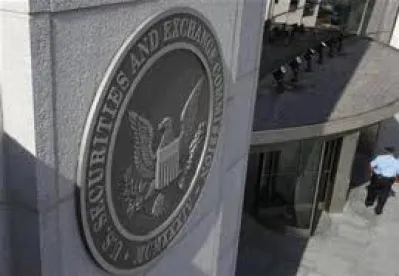Summary
US regulators have stepped up their activity in terms of enforcing the regulation of virtual currencies and on September 11, 2018, issued four relevant decisions: FINRA’s first disciplinary action involving cryptocurrencies; the SEC’s first enforcement action regarding an investment company registration violation involving investments in digital assets; the SEC issued its first case charging unregistered broker-dealers for selling digital tokens, and the United States District Court for the Eastern District of New York ruled, in what is believed to be the first criminal case of its kind, that an initial coin offering may be deemed a “security” for purposes of federal criminal law.
In Depth
On September 11, 2018, US financial regulatory authorities and a New York Federal District Court were busy enforcing the federal securities laws against virtual currency companies. On that day, four important virtual currency-related enforcement decisions were delivered:
- The Financial Industry Regulatory Authority (FINRA) issued its first disciplinary action involving cryptocurrencies. In its complaint, FINRA alleged that Timothy Tilton Ayre (Ayre), the president and the largest shareholder of Rocky Mountain Ayre, Inc. (RMTN), a public company, attempted to lure public investment in RMTN by making fraudulent, positive statements about RMTN’s business and finances, and by issuing and selling HempCoin, a coin which Ayre publicized as “the first minable coin backed by marketable securities” and “the world’s first currency to represent equity ownership” in a publicly traded company. FINRA alleges that Ayre defrauded investors by making materially false statements and omissions regarding the nature of RMTN’s business, failing to disclose his unlawful distribution of HempCoin, and making multiple false and misleading statements in RMTN’s financial statements. Ayre is being charged under the federal securities laws with the unlawful distribution of an unregistered security since he never registered HempCoin, and no exemption to registration applied.
- The Securities and Exchange Commission (SEC) issued its first enforcement action regarding an investment company registration violation by a hedge fund manager based on its investments in digital assets. According to the SEC’s order, hedge fund manager Crypto Asset Management LP (CAM) and its sole principal, Timothy Enneking (Enneking), offered a fund that operated as an unregistered investment company. CAM, marketed falsely as the “first regulated crypto asset fund in the US”, had filed a registration statement with the SEC and raised more than $3.6 million. CAM was found to be engaging in an unregistered non-exempt public offering, investing more than 40 percent of its assets in digital asset securities, causing the fund to operate as an unregistered investment company. Eventually, CAM and Enneking paid a $200,000 penalty after agreeing to the SEC’s cease-and-desist order and censure without admitting or denying the findings against them.
- The SEC also issued its first enforcement action charging unregistered broker-dealers for selling digital tokens since the issuance of The DAO Report in 2017, which cautioned that those who offer and sell digital securities must comply with the federal securities laws. The SEC entered an order finding that TokenLot LLC, a self-described “ICO Superstore”, and its owners received orders from retail investors and handled hundreds of different digital tokens, which the SEC found included securities, without registering as broker-dealers. TokenLot and its owners promoted the company’s website as a way to purchase digital tokens during Initial Coin Offerings (ICOs) and engage in secondary trading, with most of its business occurring after the issuance of The DAO Report on the applicability of securities laws to digital assets. After being contacted by the SEC staff, TokenLot voluntarily winded down and refunded investors’ payments for unfilled orders. TokenLot and its owners were charged with violating the registration provisions in connection with their conduct.
- The United States District Court for the Eastern District of New York ruled that a jury may find that the investment opportunities provided by a defendant who offered virtual currency investment schemes and related ICOs may meet the definition of “security”. United States v. Zaslavskiy, No. 1:17-cr-00647 (E.D.N.Y. September 11, 2018). The SEC sued defendant Maksim Zaslavskiy (Zaslavskiy) for making materially false and fraudulent representations and omissions in connection with two purported virtual currency investment schemes and their related ICOs: REcoin Group Foundation, LLC (REcoin) and DRC World, Inc. (DRC). Zaslavskiy, who allegedly promised token purchasers profits from his companies’ investments in diamonds and real estate, moved to dismiss the indictment, arguing that the virtual currencies promoted in the REcoin and DRC ICOs are “currencies”, and therefore, by definition, not securities. As such, Zaslavskiy argued that the ICOs did not involve securities, and are beyond the reach of the federal securities laws. As a separate basis for dismissal, Zaslavskiy argued that the US securities laws are unconstitutionally vague as applied to cryptocurrencies, and are “void for vagueness”. The government asserted that the investments made in REcoin and DRC were “investment contracts”, and thus “securities”, as defined by both Section 3(a)(10) of the Securities Exchange Act of 1933 and Section 2(a)(l) of the Securities Act. The court rejected Zaslavskiy’s arguments, holding that a reasonable jury could conclude that the facts alleged in the indictment satisfy the Howey test, which determines whether certain transactions qualify as “investment contracts”, and that the laws under which Zaslavskiy was charged were not unconstitutionally vague “as applied to his conduct”. Ultimately, the court determined that “at this juncture, Zaslavskiy’s contrary characterizations are plainly insufficient to bypass regulatory and criminal enforcement of the securities laws,” and as a result, the case will proceed to trial.
Conclusion
Market participants should note the increased activity by the SEC and FINRA in their enforcement of regulation of virtual currency transactions. Similarly, recent court rulings such as in the Zaslavskiy case show that US courts are finding that an initial coin offering may be deemed a “security” for purposes of federal securities law. We will know the full implications of these interpretations and rulings over time, but they will certainly have wide-ranging market implications.






 />i
/>i
